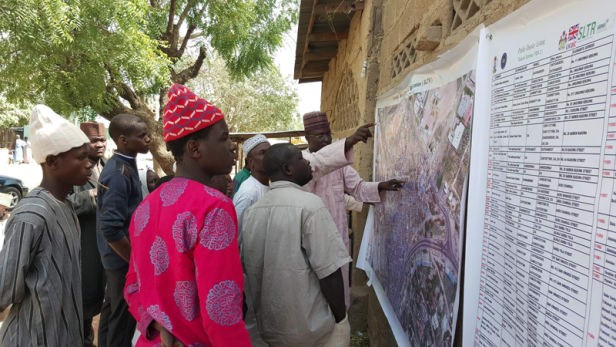By Andrew Smith
Land administration reform is increasingly being recognized as an essential aspect of economic development. Numerous projects have successfully recorded millions of plots of privately held land in developing countries. The expectation is that secure tenure will generate a more active administration system in pursuit of economic growth. That growth is ultimately anticipated to deliver social reforms, with particular emphasis on gender issues and job creation. It is hoped that improved administration and more transparent governance will support mortgage markets comparable to those in the developed world that have been proven to underpin long-term fiscal stability.
But have these large scale, land survey-driven projects truly delivered change to the poorest sectors of populations? The largest scale land registration project in recent times sought to regularize land holdings in the Horn of Africa, and culminated in 10 million registered land titles. Another project in the same region sought to record agricultural plots and empower rural farmers to achieve commercial levels of production and food security. Evidence implies that economic reform anticipated in rural areas was not attained, and functional shortcomings in systems have proven challenging. There is little evidence of the anticipated increased activity in the formal land market in rural areas, and administrative functions remain centered on urban centers. Time will tell if the land reform model in these regions will offer the social or economic change expected by stakeholders.
In 2010 the U.K. government launched a flagship business environment reform program in Nigeria. It sought to generate sustainable economic growth through targeted reforms in land administration, taxation and investment. It was expected to facilitate meaningful opportunities for job creation to address the pressing needs of Africa’s most populous nation.
Land reforms initially focused on regularization in northern Nigeria, in line with the development theory applied elsewhere. However, it became apparent that simply registering plots of land and generating proof of ownership would not support job creation and improved economic opportunity. Nor was it obvious that land registration offered any broader value to other government arms competing for limited state funds. A history of inefficiency, rent-seeking and underinvestment also meant most local land administration institutions were held in contempt. Even the prospect of achieving proof of title for as little as $10 as opposed to $1,000 charged by traditional systems failed to encourage land owner engagement. The economic and social impact expected by both donor and the state was not delivered and after 18 months, a new strategy was required.
To ensure land reforms truly generated additionality to all stakeholders, certain questions needed answering: How should property owners, local government and national government benefit? How can the outcome serve private enterprise most effectively? What short, medium and long-term factors will persuade all stakeholders to participate and achieve optimal outcomes?
In Kano, land registration processes were expanded to encompass social and physical data excluded from traditional models. In addition to identifying plot extent, data was requested on family size and structure disaggregated by age and sex, school attendance and academic attainment, trades and skills and data on access to services including water, electricity and car ownership.
It not only became possible to offer property owners access to certificates of ownership at affordable prices, but it became possible to offer socioeconomic data to address pressing problems facing longer term sustainable economic growth.
Previously, the state and private sector lacked information on land use, occupation, rateable value, market size, market share, demographic trends and other information essential to the development of a strategic social reform policy.
After six months of land registration activity, the city gained data on the people and their livelihoods. The culmination of the registration of even a single borough now addresses the need of the state, the population and the private sector.
The state gains an appreciation of the human resource potential and informs decision-making to ensure social needs are met. Who is in school? Who lacks access to education or health care? Where are the seasonal disease risks and how can they be mitigated? How can we improve land use? How can revenue be optimized?
The people gain a voice. Taxation becomes transparent and they are better able to demand services, including access to health and education locally rather than remote provision at regional hubs. Participation in formal processes becomes easier as the state can devolve simpler, cheaper administrative tasks to local offices, and local entrepreneurs can form cooperatives once they understand the scale, nature and location of markets. The private sector also gains valuable knowledge of the local marketplace, offering a massive competitive advantage for investment.
If all three major stakeholder groups collaborate effectively, it will provide huge opportunity. The data allows a common thread of dialogue, encouraging better advocacy for positive change by, and in favor of, all groups.
What started out as a relatively simple, but potentially futile, exercise in Systematic Land Title Registration ultimately generated the essential access to land title envisaged under the scheme. It also, more importantly, provided Kano State the potential to reattain its status as a major commercial center both in Nigeria and the Sahel. The statistical sample offers insights into the livelihoods of millions of people, and provides a management tool not only for the state, but for future programing. And the cost? Typical land registration projects that seek to solely deliver land title seek a cost per unit of around $10-$12. This Nigerian project not only delivered the opportunity to generate a land title, but also a strategic economic development model at a cost of approximately $8 per unit.
This blog was originally posted on the Devex Focus on Land Matters.

